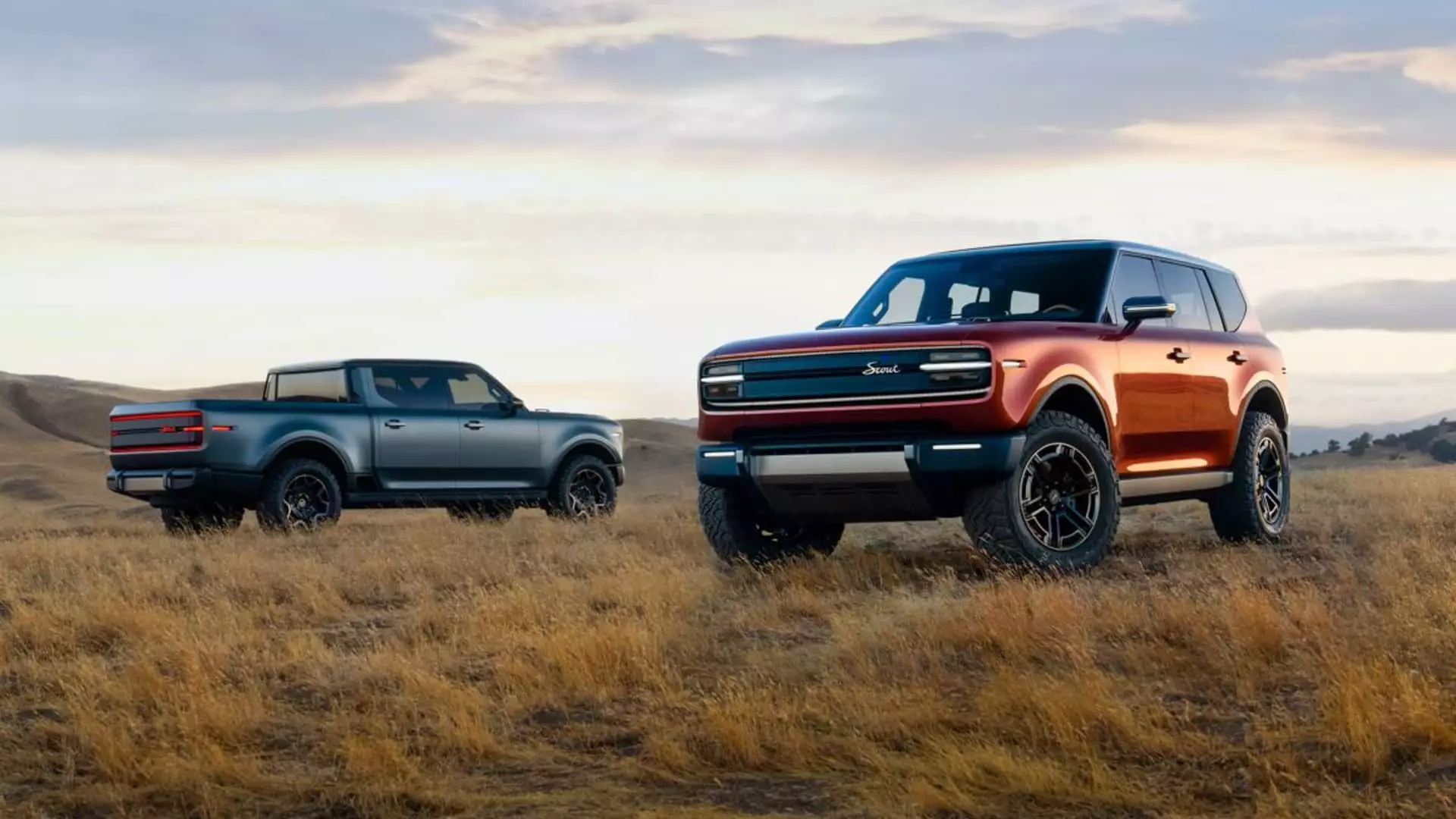The resurgence of the Scout brand, initially an American automotive staple from 1961 to 1980, is generating significant interest as Scout Motors embarks on a venture into the electric vehicle (EV) market. Under the umbrella of Volkswagen (VW), the company has reported over 50,000 refundable reservation deposits for its first lineup of electric pickups and SUVs—an encouraging indication of consumer interest in these heritage-inspired vehicles.
Volkswagen’s decision to reinvigorate the Scout brand forms a piece of their larger strategy to capitalize on the burgeoning EV market in the United States. The reveal of two production-intent vehicles—the Terra pickup truck and the Traveler SUV—has marked a pivotal moment. Both vehicles are positioned to be offered in all-electric and extended-range electric vehicle (EREV) variants, serving a dual purpose in appealing to varying consumer preferences. Although the pre-sales figures are impressive, the company does acknowledge that these reservations alone do not guarantee sales. Nonetheless, they serve as a useful barometer of market sentiment.
The CEO of VW, Oliver Blume, described the reception of the Scout vehicles as overwhelmingly positive, highlighting a nostalgic connection among consumers. This sentiment indicates that the Scout brand is resonating with both potential buyers and automotive enthusiasts as a beloved piece of American motoring history. The strategy of paying a $100 refundable deposit to reserve a vehicle is a smart move, as it minimizes the risk for consumers while still demonstrating their commitment to the brand.
Currently, Volkswagen’s market share in the U.S. sits at a modest 4%. With the launch of Scout vehicles, the company aims to bolster its position significantly, with concrete plans to expand across various vehicle segments, including features reminiscent of off-road powerhouses like Jeep and Rivian. The CEO of Scout, Scott Keogh, shared insights at the CES tech conference and mentioned that around 70% of the reservations have been for the Traveler SUV, which aligns with the company’s expectations.
The Scout vehicles are projected to begin at under $60,000, making them competitive in an increasingly crowded market that features several established and emerging manufacturers. Notably, the EREV models offer more than 500 miles of driving range, while all-electric models promise up to 350 miles. These specifications offer a compelling reason for potential buyers to explore Scout as a viable alternative to traditional internal combustion engine vehicles.
The design ethos behind the Scout brand emphasizes not just traditional vehicle capabilities but also modern customer expectations around connectivity and technological integration. The vehicles are being marketed as outdoorsy recreational models, appealing to adventure-seeking individuals. Notable features, such as satellite connectivity, would enable drivers to remain connected in remote areas, a critical selling point for customers who prioritize outdoor activities.
Moreover, the partnership between Scout and a joint venture with Rivian and VW focused on software and electrical architecture is indicative of the strategic alliances being formed to ensure that the new models are built on a robust technological foundation. This approach will likely enhance the driving experience and provide functionality that meets contemporary consumer needs.
Currently, Scout Motors is in the process of constructing a production facility in South Carolina, which is projected to have an annual capacity of 200,000 vehicles. This move is instrumental for Scout as it aims to address not just local market demands but also potential export opportunities. Leveraging battery technology from a VW joint venture in Canada will be crucial to their cost-effective strategy, given that battery production remains one of the most significant expenditures for electric vehicle manufacturers.
The acquisition of the Scout trademark as part of VW’s $3.7 billion acquisition of Navistar in 2021 has enabled the automotive giant to re-enter the market with a fresh slate, juxtaposing historical context with modern innovation.
As the automotive landscape continues to evolve, Scout Motors represents a blend of nostalgia and innovation, capturing renewed interest in American automotive culture while embracing the future through electrification. The increasingly competitive EV sector remains vigilant, and the successful launch of Scout vehicles could signal a significant shift in Volkswagen’s overall strategy to reshape its identity and market share in the U.S.

